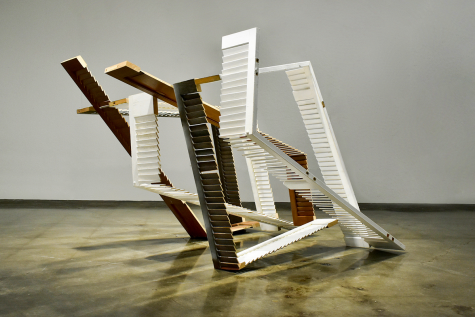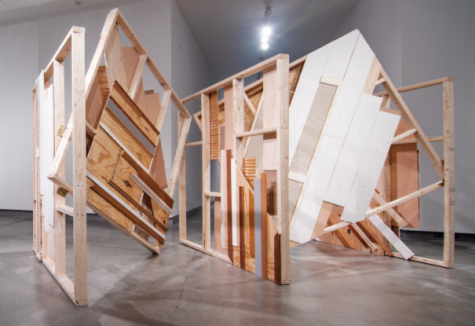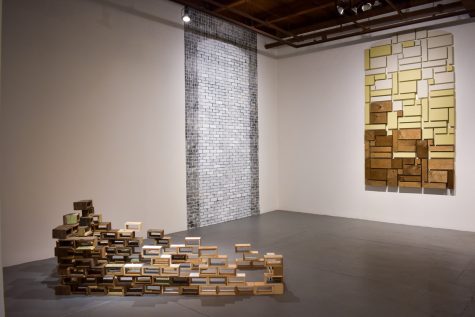Sculptor Kylie Ford and Her Exploration of the Transition of Domestic Spaces
Sculptor Kylie Ford attended Fairmont State University to receive her Bachelor’s Degree in Studio Art in 2014, then headed to Portland, Maine to attend Maine College of Art to receive her Masters in Fine Arts. Now, Kylie Ford is back at Fairmont State as the art editor for Fairmont State’s literary journal Kestrel. Ford’s eye for art has been a revelation for the journal, as she brings a unique focus on architecture to the paper.
Ford’s focus on architecture comes alive in her art exhibitions that primarily focus on investigating the architecture of the domestic spaces we occupy. These domestic spaces include personal homes, residences, or any private place that brings comfort. Ford wants to connect how we relate our feelings of home and comfort to the formal architecture that we designate these domestic spaces within. In her move from West Virginia to Maine for graduate school, Ford felt the difference in these states’ domestic spaces, particularly in comparing and contrasting the growing cities of Maine, like Portland, in comparison to the declining cities of West Virginia, like Clarksburg.
For the growing Portland, domestic spaces are going through a transition and transformation to be able to house more people. Ford felt this transition first hand as a student staying in one of the many once family homes that had been transformed into an apartment that could hold multiple students. Some houses that once were a domestic place for a nuclear family of five were transformed into an apartment that could hold up to 13 students.
Ford expresses this transformation of Portland’s domestic spaces in her sculpture Object Analogy. With this piece, Ford wanted to ask the question “How do transitory spaces reflect the transition we feel ourselves?” Ford felt her own transition from WV to Maine in the spaces that she occupied through the switch from the log cabins of WV that had a high sense of constructive through the high scarf medium of the woodwork to the more makeshift and dynamic apartments of Portland.

In her sculpture Wall Division, Ford once again explores the idea of transition in domestic spaces, but this time through the use of positive and negative space. Through the use of these oppositional ideas of positive and negative, Ford was able to show how public and private spaces often overlap. The private may be transformed into the public, as Ford’s apartment in Portland was transformed from a private home meant for one family unit to a public apartment open to different students.

In her sculpture Stacks, Ford wanted to focus on the balance of both positive and negative spaces, but this time through a combination of the two and not a transition from one space to another. Stacks was inspired by the footers on houses in the hills in WV that provide a base to stabilize the homes. These footers manipulate the public mountains to private spaces for people to occupy. Ford focused on the relationship between what must be manipulated to create a domestic space, and for WV, what must be changed is often natural, like hills. For Maine, these spaces are already man-made and must be manipulated to fit more people.

Ford provides a unique perspective on domestic spaces that is not typically expected of a female sculptor. She takes the unique approach of looking at domestic places from the perspective of the transitions the environments they occupy must undertake to house people. Ford says “I do not want to look at domestic spaces from the standpoint of traditional gender roles, even though I am inherently expected to by being a female working with sculpture.” Ford’s art uses her own personal experiences and a critical eye that observes the architecture around her to create sculptures that reflect all that she sees in her environment.


